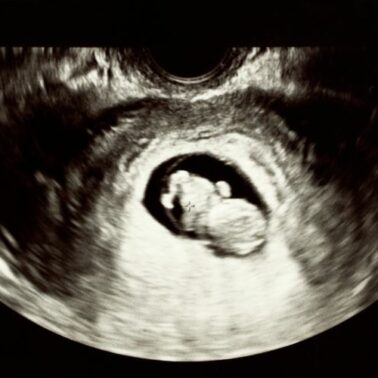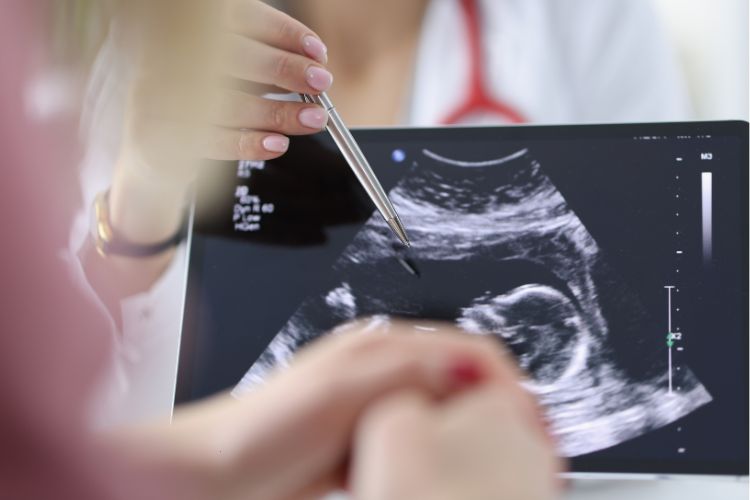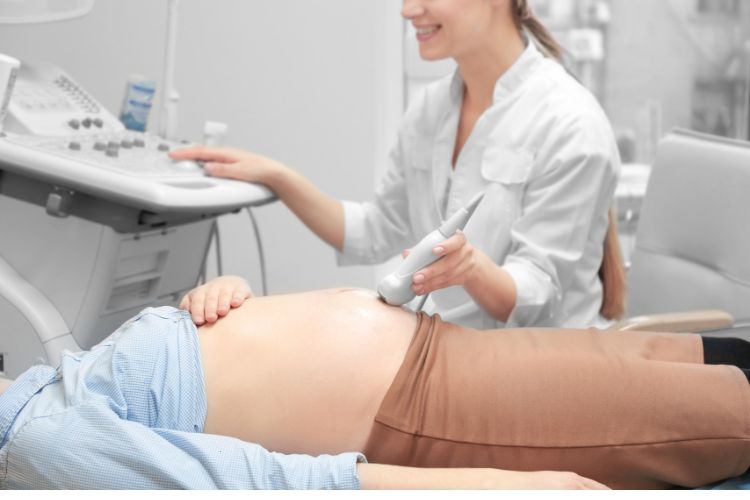
Different Types of Pregnancy Scans and When You Need Them
Pregnancy is an exciting time, full of changes and anticipation, but it is also entirely normal for it to be a bit worrying and stressful at times. After all, your life is about to change with the addition of another, and there’s so much to do before you can welcome your new baby to the world.
The medical appointments alone can seem intimidating and overwhelming, but they don’t have to be. Most tests and scans are simple and straightforward, designed to ensure that both mother and child are fit and healthy throughout the pregnancy.
This article covers the range of pregnancy tests and scans available in Australia as well as a recommended schedule, from your very first look right up until the due date. Join us, as we explore the different types of pregnancy scans and when you need them.
What Are Pregnancy Tests?
Pregnancy tests are more than just discovering you are pregnant. They cover a wide range of vitally important prenatal care, helping you to track your baby’s development progress and identify any potential problems early, such as gestational diabetes and genetic abnormalities.
These tests cover both screening and diagnostic tests, which can include ultrasound scans, urine tests, and blood tests, such as non-invasive prenatal testing (NIPT). Pregnancy can be a stressful and nervous time for expectant mothers, by understanding the types of care available, you will be more confident in making informed decisions about your pregnancy care from conception to birth.
Screening and Diagnostic Tests
Two stages of tests look for abnormalities in the foetus: screening tests and diagnostic tests. Screening tests are used to estimate the chances of genetic disorders or other abnormalities. Diagnostic tests follow and are used to confirm the presence of a condition or disorder.
For example, screening tests include the combined first-trimester screen (CFTS) and non-invasive prenatal testing (NIPT), which search for the likelihood of chromosomal disorders like Down syndrome, Edward syndrome, and Patau syndrome by checking for markers in the mother’s bloodstream.
Diagnostic tests can include chorionic villus sampling (CVS), and amniocentesis confirm the existence of the above conditions, as well as other genetic abnormalities, by taking a tissue sample from the placenta (CVS) or extracting amniotic fluid from the uterus (amniocentesis).
Types of Ultrasound Scans
Ultrasound scans use sound waves to build an image of internal structures in the body, which includes your developing baby. Ultrasounds are a 100% safe and pain-free procedure, and unlike other types of medical imagery, no needles or radioactive compounds are used.
Ultrasound scans are a safe and reliable way to monitor the progress of your pregnancy (especially in the early stages) and can provide information such as whether there are twins (or triplets), what your due date is, and the sex of the baby (though your sonographer will ask if you want to know first!)
Dating Scan (7-11 weeks)
Your first scan will likely be a dating scan, which will confirm the pregnancy, help you determine how far along the baby is, and provide you with an estimated due date. The dating scan will also check the baby’s growth and development by detecting the foetal heart rate, and therefore, the viability of the pregnancy.
Nuchal Translucency Scan (11 weeks and 4 days -14 weeks)
After 11 weeks 4 days, but before 14 weeks, a nuchal translucency scan is performed to assess the likelihood of the baby having a chromosomal condition like Down Syndrome. This is done by measuring the amount of fluid behind the foetus’s neck, along with checking the structure of the baby.
Blood tests are also available which can scan the mother’s blood for trisomy factors, which will help determine the baby’s chances of having a chromosomal condition.

Anomaly Scans (18-22 weeks)
Next, are anomaly scans, which take place between 18 and 22 weeks. These ultrasounds are called morphology scans, where all the baby’s anatomy and structure are assessed. These scans can also show other health problems, such as major limb abnormalities, kidney problems, cleft palate, spina bifida, and anencephaly.
Repeat anomaly scans may be needed, particularly at 19–22 weeks as some structures may not be fully formed enough to accurately assess. Rather excitingly, anomaly scans are also an opportunity to discover the sex of your baby if you want to know it early.
Specialised Ultrasound Scans
Growth Scan (24 weeks onwards)
From about 24 weeks onwards, specialised growth scans can be performed to consistently monitor your baby’s overall growth and well-being. These scans measure the baby’s head, abdomen, and limbs to assess whether they are growing at the correct development rate.
The volume of amniotic fluid, blood flow through the umbilical cord, and position of the babyin the uterus are also checked and assessed.
3D Scans
Three-dimensional (3D) scans are technically a specialised kind of scan but can be performed during any of the scans mentioned above. While some clinics may offer 3D scans as a heartwarming keepsake, medically speaking they are generally only used to form a more complete picture of a previously detected abnormality.
While 3D scans provide incredible images of your unborn child, picture clarity may vary. The baby’s position in the uterus, the size of the placenta, the placement of the umbilical cord, the volume of amniotic fluid, and the thickness of the mother’s surrounding tissue can all affect the final images.
Blood Tests and Diagnostic Testing
Diagnostic Testing
Diagnostic testing helps confirm and verify the presence of genetic conditions or development issues, providing expectant mothers with the information they need to make informed decisions about their pregnancy and prenatal care. These tests are more invasive than the types of ultrasound scanning mentioned above but may be deemed necessary by your doctor to assess the health of the foetus.
Who Performs Pregnancy Scans?
Pregnancy scans are performed by trained healthcare providers, such as doctors and specially trained technicians like sonographers, who are specially trained to perform ultrasound scans. Obstetricians, among other medical specialists, also have the specialised training required to perform ultrasound scans.
What Happens When I Get the Results?
Antenatal tests can include ultrasound scans and blood and urine tests to assess and confirm your and your baby’s health. While your sonographer will be able to give you a brief description of what you see on the ultrasound screen, the test results from your ultrasound and any other antenatal tests will be left for your healthcare provider to discuss with you.
Together with your doctor, you can discuss any concerns or ask any questions you have, while your healthcare team can provide guidance and support in what can be a stressful and worrying time. On rare occasions, genetic counsellors may also help expectant mothers make informed decisions about the results of genetic testing and the implications of the choices ahead.

Frequently Asked Questions
What are the scans required during pregnancy?
Dating scans, nuchal translucency scans, and anomaly scans are all common scans to have in your first and second trimesters. After that, growth scans help monitor the baby’s development up until birth.
How many scans do you have during pregnancy in Australia?
In Australia, most women will have at least two ultrasound scans during their pregnancy, one in the first trimester and one in the second. However, your healthcare provider may determine that more are required to properly and safely monitor the foetus’s development.
Which type of scan is best for pregnancy?
Apart from the blanket answer of “an ultrasound scan”, there is no one “best scan” for pregnancy, as each scan has its own specific purpose for being performed.
Is 7 weeks too early for a dating scan?
Seven weeks is generally the earliest that a dating scan should be performed. While a pregnancy can be confirmed and viability established by 7 weeks, the foetus is still very small at this stage and several structures are yet to properly develop. There may be times when your doctor requests an ultrasound earlier than 7 weeks.
Your Partner in Pregnancy Scanning
Pregnancy scans are routine and reliable methods to assess the health of both mother and baby. They shouldn’t be stressful or uncomfortable, but an exciting part of your pregnancy journey as you get to look at your child for the very first time.
Working together with your healthcare provider and a reputable and compassionate medical imaging clinic like PRP Diagnostic Imaging can go a long way to soothing any worries you might have. Contact the friendly and compassionate team at PRP Diagnostic Imaging with your scanning referral and let us help you through your pregnancy journey with high-quality imaging and a friendly smile.
